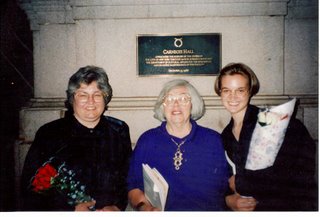Why do I think this?
- Texas ranks 50th of 50 in funding for foster care.
- Texas also ranks dead last in education.
- Texas ranks first in deaths due to child abuse.
- Some children in the Texas system are in up to 20 single-family foster homes.
- Many children are in residential treatment centers/group homes until age 16.
- 70% of the U.S. prison population has been in foster care.
- Many kids in foster care age out and end up pregnant or on welfare.
There's more...
Reports indicate that less than two percent of foster youth will graduate from college and up to 50% will end up homeless within two years of emancipation. (From the KING Gala press release)Whether these facts are related or not, I can only venture an observation that the system is freaking broken and these kids need every shred of hope they can get. I can't think of a better way to make a positive difference on every aspect of these youngsters' lives than to get involved with this program.
Now for the Fun Part!
Want more awesome Proof is in the Pudding goodness?
Joshua is a fantastic young man. When I first met him, he was a little shy and was not extremely confident about his musical abilities in piano and voice. In the last year, I have seen him grow not only in his music career, but also in his schoolwork. He is improving greatly in both piano and voice and has learned to play the violin proficiently! He has pulled his grades up significantly as well.This year, so far, he has all A and B grades!! He is driven in his music and is looking forward to studying music in college. I am very proud of him!!
This is the "Ways You Can Help" part
- Attend the 2011 Music For the Soul Gala concert with Blues Traveler!
- Donate $$, time, blog posts, instruments, musical instruction, in-kind services…
- Let all your friends know
- Think of ways you can partner for concerts, etc.
- Comp tickets for the KING kids for your concerts, shows, etc.
- Collaborate with other kids' groups
- Include info in newsletters
- Spread the word about KING
The Really Awesome Bottom Line...
KING is making a difference. And you can help.
Alternately, Kids in a New Groove offers a decidedly more promising path by providing private music lessons to youth in foster care. All of their most recent high school graduates went on to college this fall, demonstrating that they are truly making a difference. The November fundraiser will allow them to sustain and extend their programs throughout the state.
Kids in a New Groove’s unique music mentoring programs have a proven track record of helping these youth improve grades, behavior, and overall life skills. Lessons become a lifeline as teachers move with foster youth between placements, giving these youth a chance to trust and develop lasting relationships. (From the Gala press release)All photos courtesy Kids in a New Groove














